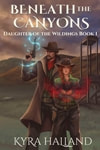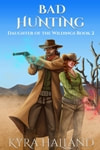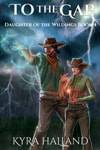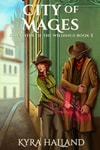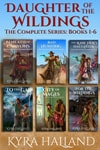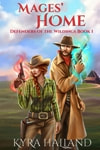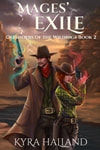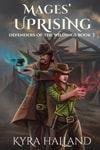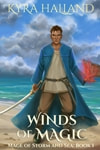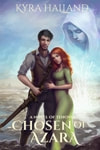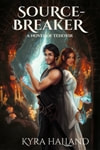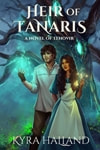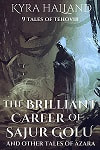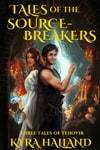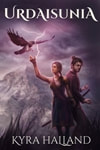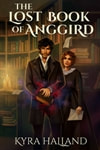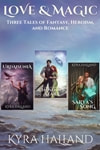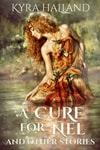 So I guess I've been neglecting this blog for a while. Here's what I've been up to in the past 15 months: Released the Mage of Storm and Sea Complete Series box set. Finished the draft of Children of the Wildings, did a basic revision to get the timeline and subplots all straightened out, and now I'm about 2/3 through the big, deep revision. Wrote the rough draft of another project (working title The Wise, though that's pretty much become obsolete). This is the expansion and completion of an old fragment. It fizzled out into the wrong ending, so I set it aside and will do an extensive rewrite once I've finished a couple of other things. Went on another two week trip to Germany with my husband. It was awesome. Started a readers' club on Ream, a new subscription platform, sort of like Patreon but specifically built by authors for authors and readers. You can Follow me on Ream for free, or I've got paid memberships starting at $3.00 per month. Depending on your membership, you get exclusive early access to my latest work in progress, bonus content, discount codes for my online store, access to my backlist on Ream and to my reader community, and more! I'll go into this more in a later post, but I hope you'll come check it out and see what it's all about. I also want to mention my online store again. It's on Payhip, a widely-used ecommerce platform, with secure payment processing by PayPal (so no, you don't have to give me your credit card number) and book delivery handled by the helpful people at BookFunnel. Get 10% off your entire purchase every day with coupon code WELCOME10! As suggested by having my own store and a subscription program, I've been rethinking and restructuring my writing/publishing business, moving away from being so dependent on a few big stores and towards building a more direct relationship with a community of readers. I'm excited about what lies ahead, and I hope you'll join me for it!
0 Comments
I am so excited to announce that Storm of Magic, book 3 of Mage of Storm and Sea, is finally available! This epic conclusion to the series was a very difficult book, but I finally got it wrestled into shape. It's Leshi and Esavas's most dangerous and heartbreaking challenge - and my longest book ever! Even though it took so long (I started writing the first draft of this series in September of 2018) and was a struggle at times, I loved writing Mage of Storm and Sea. It was inspired by books I read when I was younger, where I just loved the hero and wanted to see him find love and a happily ever after, but it didn't happen. So I decided to write that story myself. To me, Esavas is the perfect combination of badass and hapless, and when it looks like nothing will ever go his way again, I was so excited to introduce him to Leshi. Sunshine to his grumpy, much younger but she's the one that has her act together, and just the right mix of brave, sensible, and innocent to balance him. I loved writing them, and I hope you've enjoyed reading them (or will, if you haven't started the series yet!) After losing everything else, they found each other.
Now Leshi and Esavas are ready to begin their new life together in Yevoruta, the city of the mages. But the battles of the past raised more questions than they answered, questions that themselves must be answered if Esavas and Leshi are to lay the ghosts of the past to rest and find peace in their new life. But beneath the mannered, elegant surface of mage society lies treachery, and the search for those answers could cost Leshi and Esavas everything as they face the difficult - and heart-wrenching - challenge of stopping the evil that threatens to consume the life of their beloved Islands. Now available at your favorite ebook stores for $3.99. But if you buy it direct from my store, you can get 20% off any and all the books in the Mage of Storm and Sea series using coupon code STORM20. Expires 22 Jan. 2023. My store is hosted by PayHip, a widely-used ecommerce service; payments are processed by PayPal (so you don't have to worry about giving me your payment info!) and book delivery is handled by the pros at BookFunnel.  So here it is, January of 2023 already, and here’s that long-promised post with news, plus some other updates and a look ahead. First of all, news I’ve been meaning to share for a while. I’m really excited to have finally opened my own store! This is something I’ve been wanting to do for a long time. I wanted the extra measure of independence of having my own store, and I’m looking forward to doing some special things with it, exclusive discounts and bundles and so on. For now, I’m only selling ebooks; print books are something I might think about in the future. Right now, you can get 10% off your entire purchase in my store with coupon code WELCOME10, plus I’ve got a few pop-up discounts hiding here and there. The store is hosted by PayHip, a widely-used ecommerce service, with payments processed by PayPal (and I plan to add Stripe as well), so you don’t have to worry about giving me your credit card info! And book delivery is handled through BookFunnel, who make it easy to load your books onto your devices. Also, I’m in the process of updating all my print books, both new paperback editions and I’m adding case-laminate hardcovers on Amazon. These have the cover art and text printed directly on the cover; if Amazon ever makes it possible to do the fancy hardcovers with dust jackets, I’ll be on that as well. (There’s a print service that some authors use that does these, but it charges a lot of up-front fees.) But if you want something more substantial than a paperback, the case laminate covers look very nice. All the Wildings books, Daughter and Defenders, are now available in the updated paperback and hardcover editions, and I’m slowly working on the rest. A bunch of my books still have the old cover art on the print covers, so I really need to get this done! In other news, Beneath the Canyons is no longer a permafree ebook (at least, once I finally get Amazon to un-free it on the last few sites!). Having a long-term free book has been my main marketing strategy for the last 4+ years, but now I feel like it’s time to shake things up a little and try some different things. 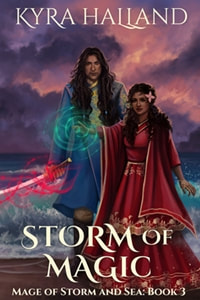 I’m nearing the end of the final FINAL (and this time I really mean it!) edits on Storm of Magic, book 3 of Mage of Storm and Sea. This is the Book that Ate My Brain, it had major, major issues, but even though it’s taken so much time and work, I’m very happy with how it’s turning out. Hoping to release it next week! To celebrate, the prequel to Mage of Storm and Sea, Dreams of Magic, is on special for 99 cents this month. Next in the pipeline: I’m nearing the end of the draft of Children of the Wildings, another trilogy set in (in case you didn't guess) the Wildings world. Now that I’m near the climax of the series and know where everyone needs to be and what they’ll be doing, I’ll need to go back and fill in the subplots. But I’ll be wrapping up this first draft sometime in the next few months. Then comes the revision, yikes. I’m working out some refinements to my revision process so that hopefully it won’t take so long! I’m also working out ideas for a new trilogy, set in an entirely new world. The working title for this one is “The Wise.” (Hint: they actually aren’t as wise as they think they are.) And a couple of other projects I’m not ready to talk about yet. For 2023, I’m working on increasing my productivity. Time management is one issue I’m addressing, and like I mentioned above, I’m making some changes and refinements in my writing and editing processes. Between the release of Mages’ Uprising, the last book of Defenders of the Wildings, and Winds of Magic, book 1 of Mage of Storm and Sea, was over two years, and I really don’t want to have that long a gap between books again! Wishing you a happy, healthy, and prosperous 2023, and stay tuned for Storm of Magic release news! I am getting close to the final *final* edits on Storm of Magic, book 3 of Mage of Storm and Sea. Which means it's time for the cover reveal! Storm of Magic is my longest book ever, and one of the most challenging ones. It's been through two major rewrites and a lot of smaller changes and adjustments, but I think it's finally almost to where I want it. This is a story I've been wanting to tell for a very long time, and I'm so glad it's almost complete. No release date yet; keep on eye on my newsletter for more info! And now, on with the cover reveal! Here's what it's all about:
After they lost everything else, they found each other. Now Leshi and Esavas are ready to begin their new life together in Yevoruta, the city of the mages. But the battles of the past raised more questions than they answered, questions that themselves must be answered if Esavas and Leshi are to lay the ghosts of the past to rest and find peace in their new life. But beneath the mannered, rigid surface of mage society lies treachery, and the search for those answers could cost Leshi and Esavas everything. Coming soon to your favorite ebook store! Last chance to get these huge anthologies to help support Ukraine humanitarian relief! Fierce Hearts is over 1000 pages of epic romantic fantasy and fantasy romance set in fantasy worlds; Adamant Spirits is jam-packed with paranormal romance, romantic urban fantasy, and science fiction romance. The print editions, paperback and deluxe hardcover, took a long time to produce because they are absolutely enormous! But they're gorgeous (check out the under-jacket art by Therena Carlin on the hardcovers!), and, like the ebooks, they are only available through the end of September. So far this project has raised over $27,000 for food and medical supplies for people affected by the war in Ukraine. If you don't have your copies yet, grab them while you still have the chance and help us bring this project to a big finish! All proceeds go to the International Rescue Committee for Ukraine humanitarian relief. Ebooks available at multiple ebook stores. Print editions are available on Amazon in various markets, and at Book Depository with worldwide shipping. Adamant Spirits
Book Depository - Paperback Hardcover 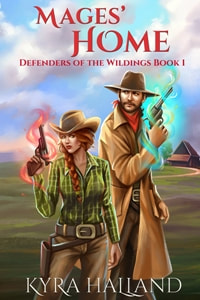 I'll get back to the updates again soon, but first, I've got a couple of 99 cent specials going on this month. Mages' Home, book 1 of Defenders of the Wildings, is 99 cents through Sept. 19. Defenders of the Wildings is the follow-up series to Daughter of the Wildings, but it's a self-contained story and I tried to write it so readers who haven't read Daughter yet can enjoy it. Mages' Home, 99 cents at your favorite ebook store: Buy eBook Direct Amazon.com AU | CA | UK Amazon International Apple | Barnes & Noble Google Play | Kobo Smashwords | DriveThruFiction More Stores 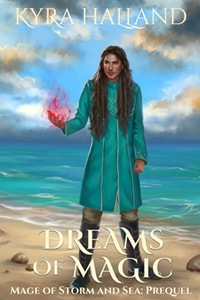 Also, Dreams of Magic, the prequel short novel to Mage of Storm and Sea, is 99 cents through Sept. 30. Available at your favorite ebook store, or you can get it for free by signing up for my email newsletter. Buy eBook Direct Amazon.com AU | CA | UK Amazon International Barnes & Noble | Google Play Apple | Kobo | Smashwords Books2Read/More Stores Okay, so I see it's been a while since I updated, and I totally forgot to announce when I released Sea of Magic (Mage of Storm and Sea #2)! And lots of other news and updates piled up, but I won't try to cover everything all at once.  So, yes, Sea of Magic is now available, has been since about the beginning of May. For years, Leshi has been enthralled by her father’s stories of fighting beside the great war hero Honored Master Esavas. When a malign force from the sea brings tragedy to their village, Leshi knows they need the help of a mage. Though she has untrained magical powers, she can never reveal them or else the law of the mages will tear her away from everything she knows. So she goes in search of Master Esavas, to ask him to save her village. But what she finds isn’t what she expected… After his devastating losses during the war, Esavas is broken, bitter, and without hope, burying his pain in drink and hiding from everyone who knows him. When the daughter of Baros, his captain and good friend, tracks him down, begging him to come protect her village, all he wants is for her to leave him alone. But even though he has no help to give and the hunt for the evil that threatens Leshi’s home seems futile, how can he say no to his captain’s daughter? As they travel across seas of danger and magic, Leshi and Esavas discover they need each other in ways they hadn’t expected. Leshi must accept the power she has always tried to deny, and Esavas must open himself to a new purpose in life - and they must both resist the love growing between them, forbidden by the laws of mage society that have laid claim on Leshi as an untrained mage. But neither love nor laws will matter if Leshi and Esavas can't find a way to defeat the evil threatening the villagers of Leshi’s little archipelago before it grows strong enough to sweep over all the Mardavian Islands. (Contains strong language, violence, mature subject matter, and sensual content.) $3.99 USD at your favorite ebook store or direct from my Payhip store! (I'll post more about that later.) Buy eBook Direct Amazon.com | AU | CA | UK Amazon International Barnes & Noble | Google Play Apple | Kobo | Smashwords Books2Read/More Stores 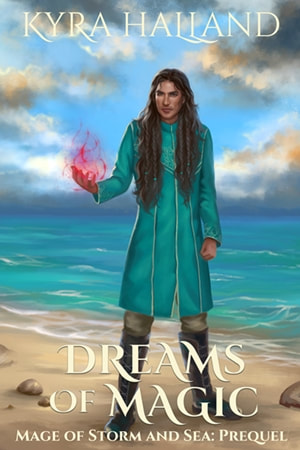 Also, Dreams of Magic, the prequel to Mage of Storm and Sea, has come to the end of its run as a subscriber exclusive. You can still get it for free by signing up for my email newsletter, or you can buy it from your favorite ebook store. The regular price will be $2.99 USD, but right now it's only 99 cents through September 30! They called him a war hero. The savior of the common people of the Islands. The greatest weather mage the Islands ever knew. But once, he was a lonely, misfit youth with some impossible dreams. Esavas Daruvias wants two things in life - to become a weather mage and to marry the girl of his dreams. But, bookish, awkward, and misfit, his magical power stunted since childhood, he knows that his hopes are completely out of reach and life as a scholar at the remote, secluded Tower is his only refuge from a society where he doesn't belong. Then his father offers him the impossible, an arranged marriage to the beautiful Pirazina, the girl he's always loved - who barely even knows he exists. Determined to win her heart and admiration, Esavas risks everything - his freedom, his future, even his power itself - to become the mage and man he longs to be and make his dreams a reality. (Contains strong language and mature subject matter, including drug and alcohol use and sexual references.) Get it at your favorite ebook store or direct from my store. 99 cents through 30 September 2022! Buy eBook Direct Amazon.com | AU | CA | UK Amazon International Barnes & Noble | Google Play Apple | Kobo | Smashwords Books2Read/More Stores With the recent terrible events in Ukraine, many people have been looking for ways to help. To that end, the team at Romantic Fantasy Shelf has put together two massive limited-edition anthologies, Fierce Hearts and Adamant Spirits. These anthologies are now available, and let me tell you, they are epic! Each volume contains over half a million words of short fiction, novellas and novels, and sneak peeks at forthcoming works by up-and-coming and bestselling authors. All proceeds from sales will be donated to the International Rescue Committee to help the Ukrainian people who are suffering as a result of this war. None of the authors or organizers are receiving compensation for their work on these collections, and all book production and advertising is being covered by monetary donations and volunteer work. Fierce Hearts is devoted to romantic fantasy and fantasy romance set in "fantasy" worlds or fantasy versions of historical earth. Adamant Spirits contains paranormal romance and romantic urban fantasy (set in the equivalent of modern-day earth) and science fiction romance. Both collections are available at multiple stores in ebook format, with more stores being added as they go live, and will also be available in paperback and special-edition hardcover, coming soon! My own contribution, in Fierce Hearts, is a newly revised and expanded version of my older story, "A Cure for Nel." I love this new and improved version, which will be exclusive to Fierce Hearts during the time the anthologies are available. When Leya's daughter falls deathly ill, their only hope is the man who abandoned them to follow his dreams of magic. But a deeply corrupted Source and a tower full of heartless wizards stands in Leya's way, and in the meantime she must trust the village witch, who doesn't believe Nel can be saved, and Daris, the gentle blacksmith whose love Leya might never be ready to accept, to keep her daughter alive. I also had the privilege of proofreading some of the stories, and I can tell you there's a lot of wonderful reading in these collections! The fantastic team at Romantic Fantasy Shelf has worked tirelessly over the last month to put these anthologies together, and it's an honor to be a part of this.
Pick up one or both of these epic, limited-time collections, discover new authors or even a new genre, and help people who are desperately in need of help. The authors and admins of Romantic Fantasy Shelf thank you <3 Note: Each collection contains stories in a range of romantic heat levels, from mild to scorching. Heat levels are clearly indicated in the table of contents and on the title page for each story, so you can choose what you want to read. I've been so excited to show this off! Here's Esavas and Leshi, finally together on the cover of Sea of Magic, Book 2 of Mage of Storm and Sea: I just love this! The artist did such a great job of capturning Leshi and Esavas's personalities. This is arguably my favorite illustration of all my book couples, along with the new cover for Bad Hunting. And here's the full wraparound for the print edition: And here's a little snippet from the book: “I don’t care what happens to me, as long as I can destroy those demons.” Watch for Sea of Magic, coming soon! To make sure you don't miss out on release news, and to get advance cover reveals, exclusive sneak peeks, and more, including a free copy of Dreams of Magic, the prequel to Mage of Storm and Sea, sign up for my email newsletter.
Here's a rundown of all the book events I'm participating in right now. Check them out and discover a new book, series, author or genre! 1/14-2/28: WIDE Fantasy, Science Fiction and Horror Permafree Book Fair Free at all stores! A wide variety of science fiction and fantasy, including series starters, box sets, and anthologies. Go on a new adventure today! 2/1-2/28: Epic & High Fantasy Free Book Giveaway Discover new worlds of fantasy! Epic and high fantasy, free to download. 2/1-2/28: Paranormal and Fantasy Romance Feb Book Fair Fall in love with a new book! A breathtaking selection of Paranormal Romance, Fantasy Romance, Scifi Romance, Fairy Tale retellings, and Romantic Fantasy. 2/1-2/28: Boxed Sets: Paranormal, Fantasy, Urban Fantasy Binge on a new series and discover new authors with this huge collection of series and multi-author box sets. Epic Fantasy, Urban Fantasy, and Paranormal Romance. 2/1-2/28: February 99 cents or Free Winter Book Collection Escape to a new adventure with these bargain-priced Epic Fantasy, Urban Fantasy, Paranormal, and Science Fiction books! 2/1-2/28: Portal to Fantasy Free Books Discover a new adventure! Epic fantasy, high fantasy, litRPG, sword & sorcery, fairytale retellings, and portal fantasy, free to download! 2/1-2/28: Love and Enchantment An enchanting selection of romantic fantasy and fantasy romance prequels and series starters, free to download! Fall in love with a new story today! 2/14-3/16: Fantasy Escapes
Escape to a new fantasy adventure for free! Epic Fantasy, Urban Fantasy, and more. |
AuthorI am Kyra Halland, author of tales of fantasy, heroism, and romance. Sign up for my email list
My Books
More Books
Click on the covers for more information
Categories
All
Archives
April 2024
Kyra Halland: Welcome to My Worlds is a participant in the Amazon Services LLC Associates Program, an affiliate advertising program designed to provide a means for sites to earn advertising fees by advertising and linking to amazon.com.
Other links on this site may also lead to products for which the owner may receive compensation. This website uses marketing and tracking technologies. Opting out of this will opt you out of all cookies, except for those needed to run the website. Note that some products may not work as well without tracking cookies. Opt Out of Cookies |


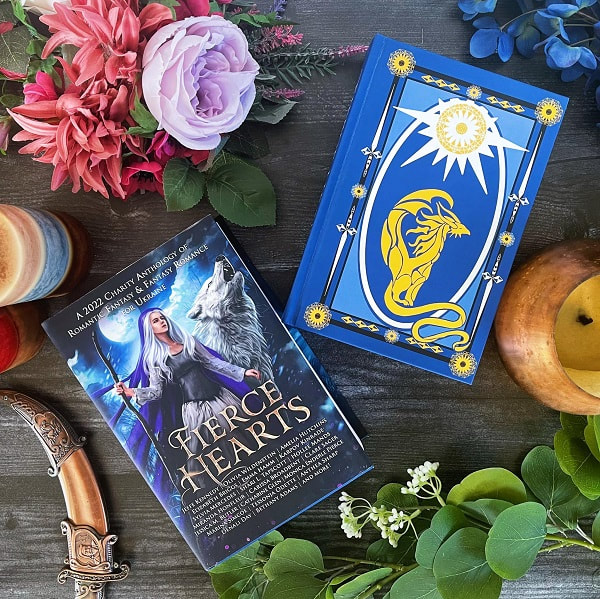
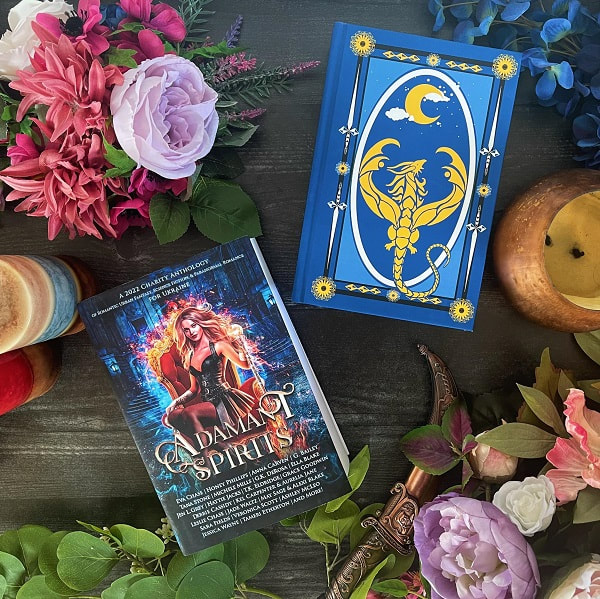

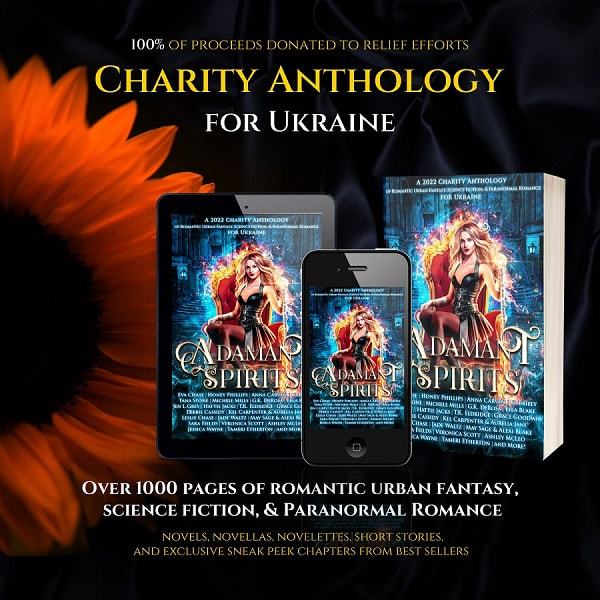

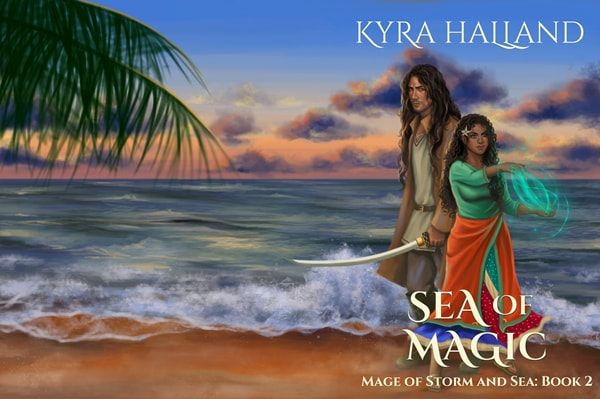
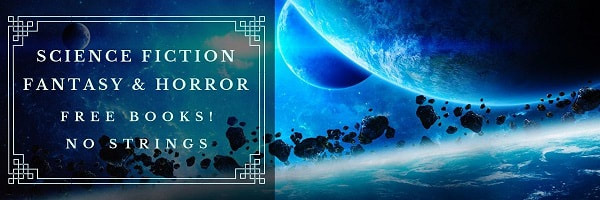
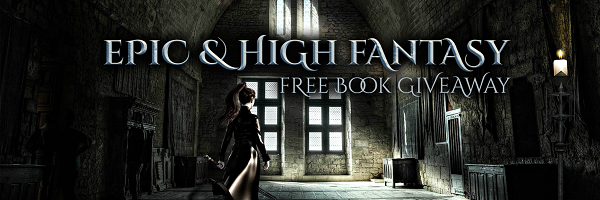
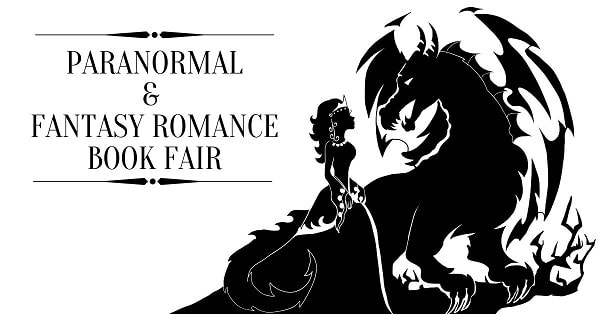


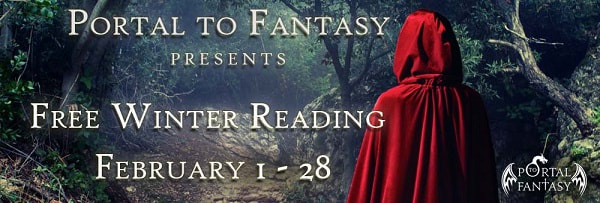

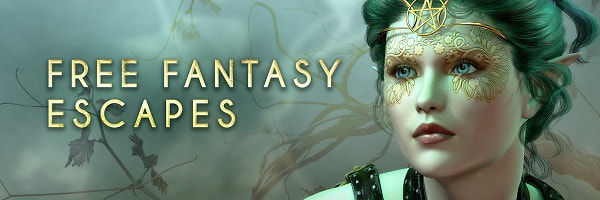
 RSS Feed
RSS Feed
